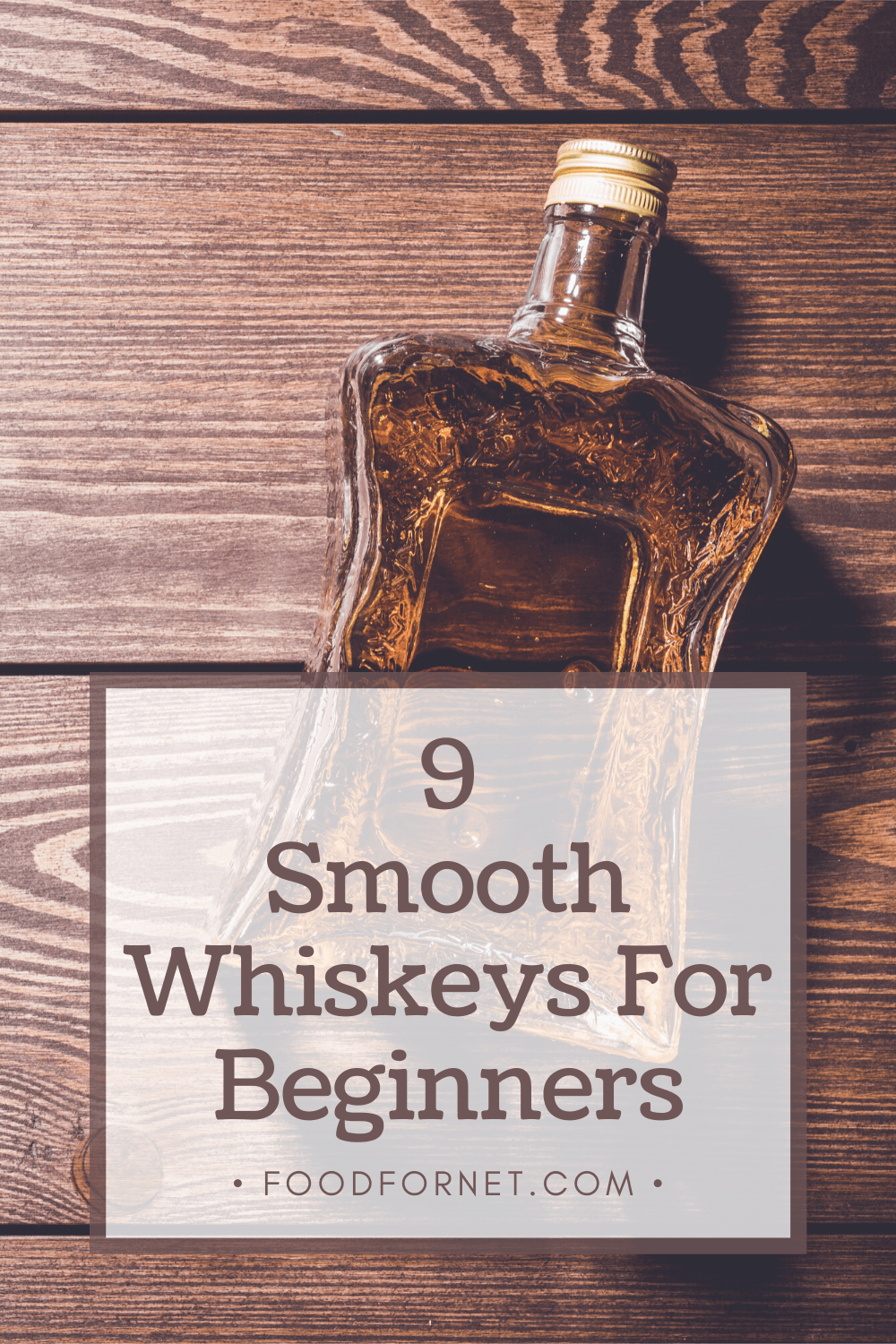
Let’s face it – whiskey isn’t for everyone. Sure, it may have some flavor in it, but for the most part, it’s a hard drink, and it doesn’t go down as easily as many other liquors in the market. That’s exactly why we’re going to talk about smooth whiskeys for beginners.
Many people would prefer other hard drinks over whiskeys, such as tequila or even vodka, crazily enough.
And let’s not forget the alcoholic beverage everyone loves – beer. There’s not much to hate about beer as a whole, and I’d bet you that your average person would, more likely than not, rather have a beer than a whiskey any day of the week.
That’s not to say that whiskey is inferior to beer, or any other alcoholic drinks for that matter. In fact, there’s a lot to talk about when it comes to whiskey.
There are different variants of whiskey, based on the country of origin (such as Irish and Scotch) or based on the ingredient in the rye mash (like bourbon and rye whiskey). They’re all good, and you’ll have to try a couple before you figure out which one suits your tastes best.
I used to be really into bourbon. Then it was rye. Now I’ve only got Scotch in my house.
If I had to choose one single whiskey to recommend for beginners, it would be Maker’s Mark bourbon. It’s easy to find, relatively inexpensive, and drinking bourbon sounds cool. It’s a smooth whiskey with a little bit of sweetness to it (a common characteristic of bourbon), so a very cool and tasty whiskey for beginners.
These days I’m really into Islay scotch, but that’s a very smokey type of whiskey that turns a lot of people off, so I don’t recommend it unless you’re adventurous.
Actually, the best way I’ve found to figure out what you like is to try a bunch through Flaviar. It’s a club, and you can actually buy little 3-round “tasters” of all kinds of whiskeys.
They always have a theme to each pack, like “peaty scotch” or “whiskey from Japan”, or even featured spirits from a single distillery. It’s a really cool club to join so you don’t have to commit to a huge bottle every time you try a new drink.
In this article, we’ve listed some of the smoothest and most flavorful whiskeys in the market today, in a variety of styles. Great for you if you’re just exploring, or even better for giving to a friend who wants to join you for a drink but is afraid of entering the whiskey water hole!
Top Smooth Whiskeys for Beginners (With Pictures!)
Because of how varied whiskey can be, we’re going to give a recommendation of each type of whiskey, from Irish to Bourbon whiskey.
Think of what type of whiskey suits your friend the most, and then follow the recommendation on this list, and your friend will be joining your whiskey-drinking sessions in no time.
If you’re new to whiskey, you may simply want to work your way through the different styles. This is one of the best ways to learn what you enjoy.
Scotch Whisky – Auchentoshan 12 Years Old
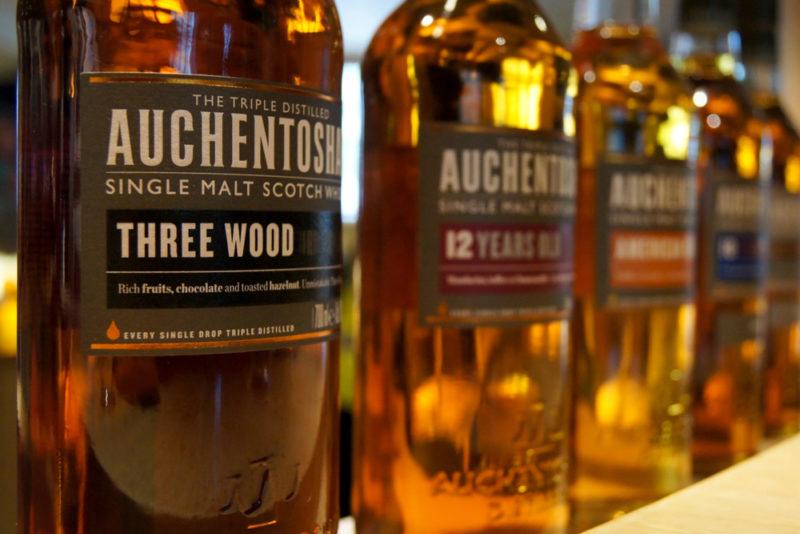
If you’re living in the UK, or you’re heading there soon on vacation, then be sure to pick up one of these bottles on the way home. Made in a distillery just outside of Glasgow, Scotland, Auchentoshan 12 is a triple-distilled whisky that, as the name suggests, has been aged for 12 years in oak barrels.
What makes this whisky such a good try for first timers is that it’s triple distilled. This means the whiskey has been through three separate distillation steps, which leaves it much smoother than other types of whiskey.
This single malt whiskey should be a great entry whisky to both Scotch whiskies and whiskey in general. At just under £40, it’s not too bad on the wallet either.
You can often find this expression in the United States as well and sites like Caskers often sell it. Here, you’re looking at around $55 per bottle, which makes this an easily accessible expression.
Irish Whiskey – Jameson Caskmates
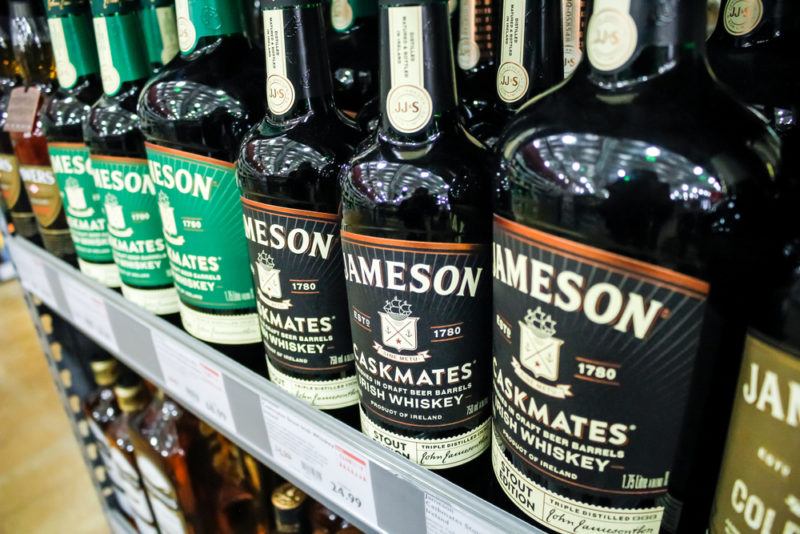
Alongside Scotch whisky, Irish whiskey has a rich history of distilling and spirits, as they’re one of the first countries that commercially sold the liquor to the public.
You can really taste the experience of Irish Whiskey in every shot. But we’re willing to bet that the person you’re introducing the whiskey to doesn’t care too much about its history (yet), so let’s focus on the taste for now.
Jameson Caskmates is a great Irish Whisky to get started with. It’s different from the usual Jameson expressions, as Caskmates batches are aged in ex-beer barrels including stout barrels or IPA barrels.
This provides an added malty, fruity flavor that you normally wouldn’t find in your typical whiskeys. If you want to offer something with extra flavor instead of going for the smoothness, then Jameson Caskmates is a good choice.
Of course, this is just one expression in the impressive Jameson lineup. If you find that you enjoy Caskmates, you may also enjoy some of their other releases, including the original Jameson. As with the Auchentoshan 12 Years Old, Jameson focuses on triple distillation, which keeps their whiskies incredibly smooth.
Tennessee Whiskey – George Dickel Superior No. 12 Whisky
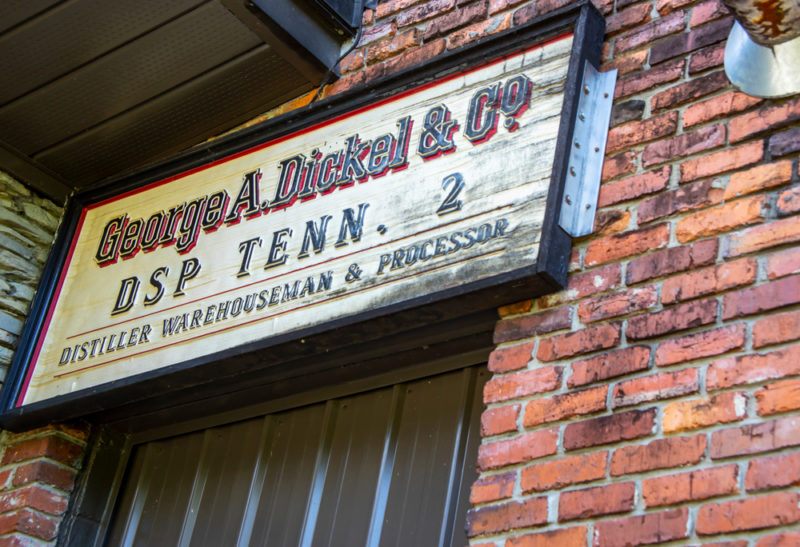
Okay, so this whiskey, in particular, may not be the best for beginners, as it does have a relatively high ABV compared to some other whiskeys at 90 proof (45%). But if your pal can get past the alcohol itself, then they’re in for a real treat.
George Dickel Superior is considered a good entry-level whiskey, not for its ABV level, but its flavors. The flavors of vanilla and caramel are more pronounced than the usual whiskeys, which is always a good thing if you want to ease someone into the whiskey.
You can even mix some water in the whiskey to lower the overall concentration of alcohol and get the drink to a milder level. Experimenting with whiskey chasers can be helpful too. Why not take a sip of a chaser after each sip of whiskey? Doing so helps to reduce the alcoholic burn and flavor intensity.
Interestingly, this product is spelled without the ‘e’, based on the idea that it’s of the same quality as Scotch whisky and should be spelled the same.
Bourbon Whiskey – Wild Turkey 101
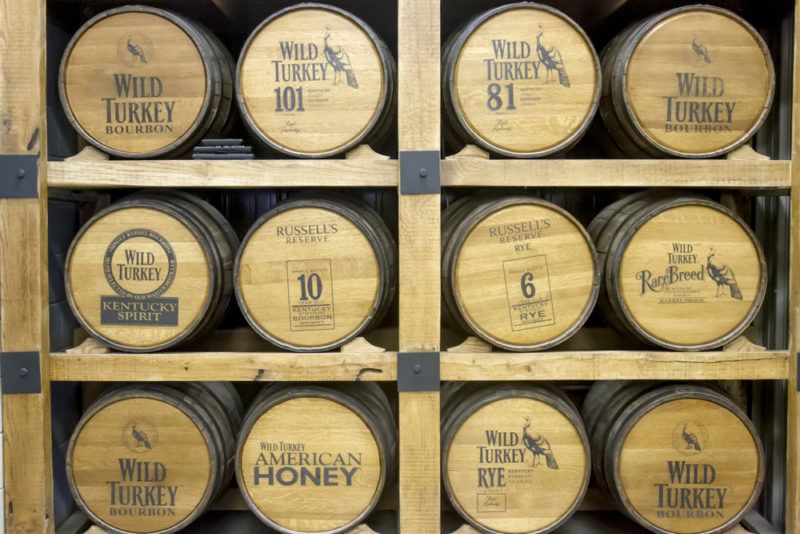
If there’s one kind of whiskey that beginners will love, it’s bourbon whiskey. The unique sweetness of bourbon that’s brought about by the corn mashes it’s made up of makes for a great first experience at whiskey.
That’s why for the most part, any batch of Bourbon whiskey will do if you’re introducing someone to whiskey, though some are better than others for this.
One good example of a “starter” Bourbon would be Wild Turkey 101. Wild Turkey 101 only comes in at a somewhat mild 50.5 ABV, and like other whiskeys, you’ll taste a lot of toffee and vanilla in every shot, combined with the already sweet undertones that Bourbon is prized for.
This is definitely a whiskey that any beginner should try out at least once. Plus, Wild Turkey 101 is easy to find and tends to be inexpensive. Those are great features in whiskey as well. This is also one of the most widely recommended whiskeys for beginners, partly because of its low price.
Japanese Whisky – Hibiki Japanese Harmony
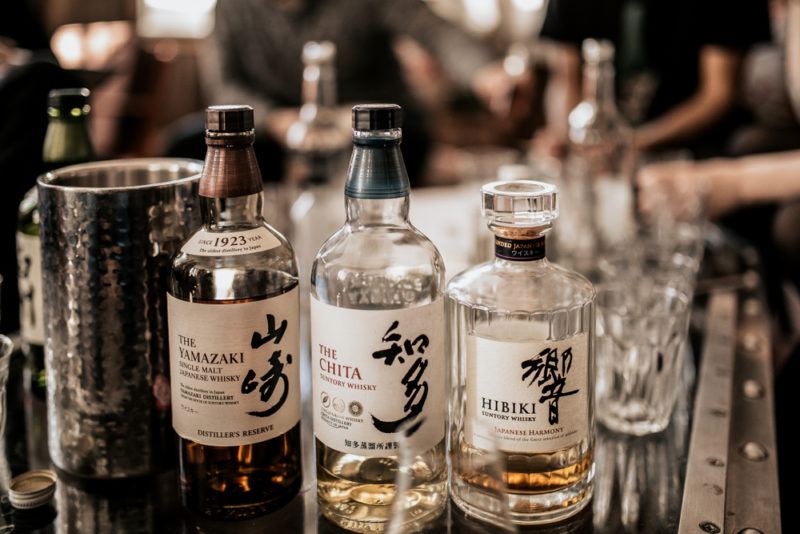
While not as popular as its Scotch and Irish counterparts, Japanese whiskies are a strong competitor to the already existing variants of the whiskey family. Originally, Japanese whiskies took heavy inspiration from Scotch whiskies, and have since evolved to become a class of its own.
The great thing about Japanese whiskies is that they aren’t as complex as other whiskeys, like many Scotch whiskies. Because of that, it’s great for beginners who don’t really care too much about the flavor but are sensitive to the body of the drink itself.
Indeed, Japanese whisky tends to be very smooth. This is partly because the temperature and humidity are more consistent than in many other locations, which makes it easier to age the whiskey well.
We recommend Hibiki Japanese Harmony as one of your go-to Japanese whiskies. It’s a great example of this new yet interesting variant of whiskey and comes with an approachable price point.
Indian Whisky – Paul John Classic Select Cask
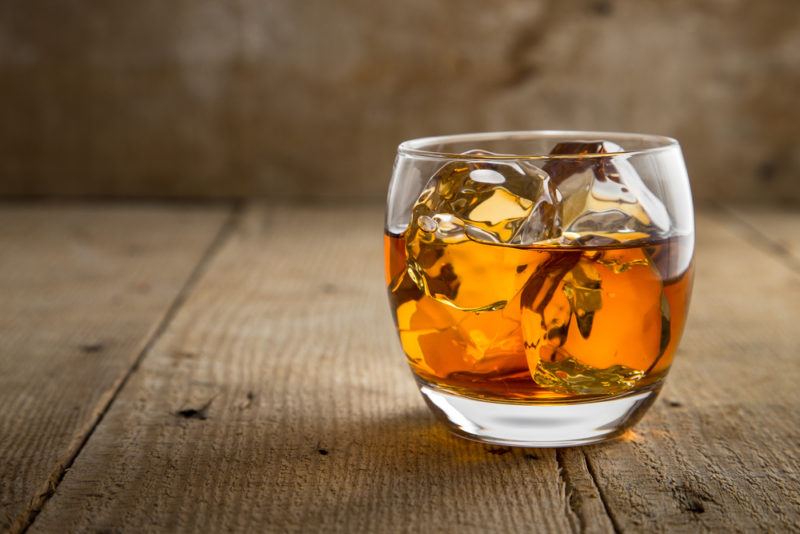
Like Japanese whisky, Indian whiskey has a different take on whiskey compared to some of the older and more traditional variants.
In fact, because of how lax regulations are in India, the local whisky can end up having very different flavors to what most people are used to, as they add other elements (such as molasses) in production. Indeed, the ingredients and flavor profile are often closer to what we know as rum, rather than authentic whisky.
As such, Indian whiskey won’t be for everyone.
If you’re fine with trying something a little different, though, then Paul John Classic Select Cask can be a good place to start. The flavor of their Classic Select Cask whisky is pulled off really well, and it’s one of the better brands of whisky produced in the subcontinent.
Speyside Whisky – The Balvenie Caribbean Cask Aged 14 Years
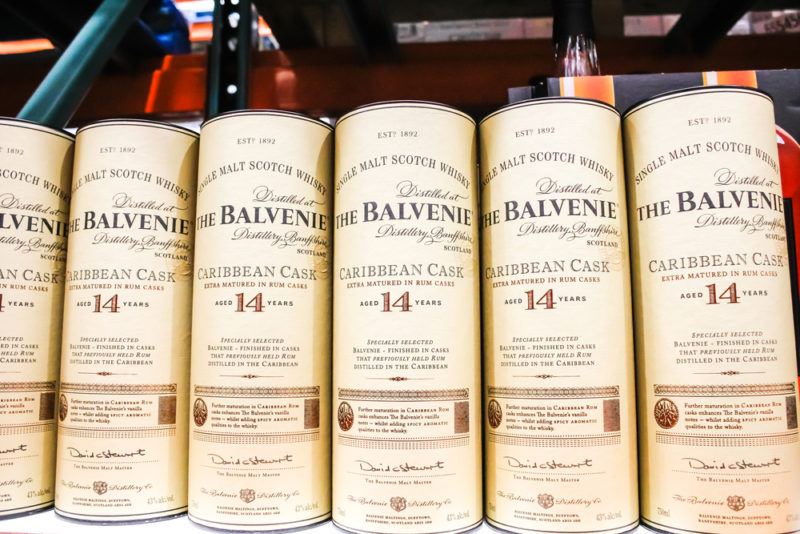
We know, we know, Speyside whisky is just a sub-variant of Scotch whisky, along with Highland and Islay.
Popular brands such as The Glenlivet and Glenfiddich are considered Speyside whiskies, a testament to the level of quality that the Speyside area is home to.
For Speyside whiskies, we recommend The Balvenie Caribbean Cask. This whisky is especially great for those who’ve already tried and enjoyed rum. That’s because it is finished in Caribbean rum barrels, giving the whisky a really sweet flavor that’s both fruity and vanilla-like. It’s great if you need a familiar taste to ease into drinking whisky.
Blended Scotch Whisky – Ballantine’s Finest Blended Scotch Whisky
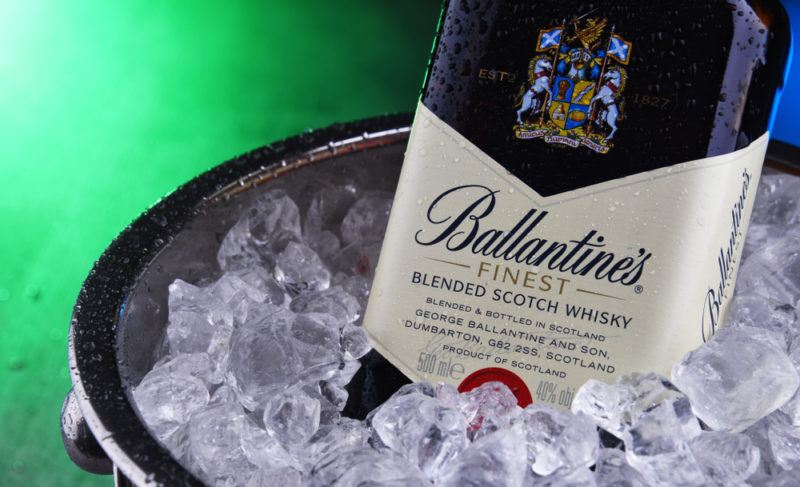
Instead of starting off with single malts, why not go for a blended whisky right off the bat? Sure, they might not be as pure as the single malts, but blended whisky can be really flavorful.
Just look at the success of Johnnie Walker as a prime example of how enjoyable blended whisky can be. We’re not going to recommend ol’ Johnnie, though – chances are that you or your friend have already tried it out, and it didn’t really click.
So instead, we recommend Ballantine’s Finest Blended Scotch Whisky instead. This expression is really smooth but has some complex flavors, so keep that in mind before sipping so you can prepare for it. The complexity isn’t surprising, as the blend includes four single grain whiskies and an impressive selection of 50 single malts.
Canadian Whiskey – Dillon’s Rye
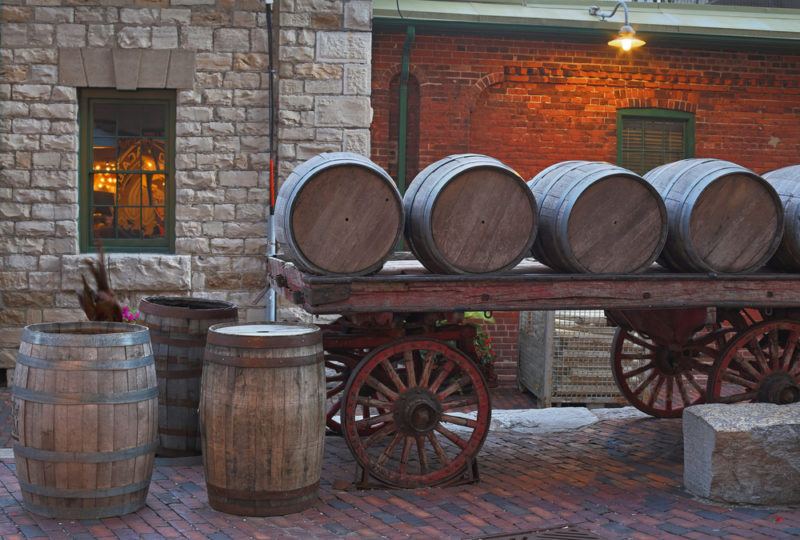
Canadian whiskey tastes great and offers a different taste from the restrictive flavors of Scotch and Irish.
Try out Dillon’s Rye if you plan on going for a Canadian. It’s spicy so it may not be for everyone, but the licorice undertones may be enough for a beginner to enjoy (or, at the very least, tolerate). Other Dillon whiskeys are also worth trying out if you can’t get your hands on their “Rye” whiskey.
This is also a relatively alcoholic whiskey, coming in at 59% ABV. As such, beginner whiskey drinkers might need a chaser to enjoy the whiskey. Or, try serving it in a simple cocktail, like the whiskey sour or an old fashioned.
What Are The Cheapest Smooth Whiskeys?
If your budget is really stretched, some inexpensive expressions are fairly smooth. They’re not as impressive as the whiskeys we’ve featured on this list and pale compared to many others. Still… sometimes you just need a bottle that’s affordable and at least semi-decent.
Here are some of the frequently recommended options. That said, you will need to experiment, as everyone has different preferences and there can be a lot of batch-to-batch variation. Also remember that pricing varies depending on where you are and the current market conditions.
- Monkey Shoulder. This blended Scotch is a popular expression that’s smooth, rich, unusual, and surprisingly inexpensive.
- Buffalo Trace. This expression offers classic bourbon flavors and plenty of vanilla.
- Tullamore D.E.W. A light and easy-to-drink Irish whiskey expression that’s been distilled three times.
- Evan Williams Black Label. This expression and Evan Williams Bottled in Bond are both enjoyable and fairly inexpensive. The black label is the cheapest of the two and has a simpler flavor profile.
- Four Roses. This sweet bourbon goes down a treat and is often easy to find.
- Evan Williams Single Barrel. While this expression is a little more expensive, it’s well-rounded and easy to enjoy.
Conclusion
Many people find that whiskey is difficult to get into. It isn’t as mild as beer (or even wine) and isn’t as sweet as other spirits like rum.
But with so many different variants of whiskey, and even more distilleries that make their own unique batches, there’s bound to be some bottles that are easy to drink for almost anybody.
So whether you really want to convince your friend to get into whiskey, or you’re exploring whiskey by yourself for the first time, this article should help you find the ideal bottle that’ll kickstart your hobby in drinking and enjoying the wonderful flavors of whiskey.
Another option is to check out the different Kirkland whiskeys from Costco. Many of these are smooth and sippable too, while also being reasonably priced.
Frequently Asked Questions
Is It Whiskey Or Whisky?
Whiskey can be spelled two ways, based on regional preference. The spelling whiskey is most often used in the United States and Ireland, while Canada, Scotland, and some other countries use the term whisky instead. If we’re talking about plurals, whiskey becomes whiskeys, while whisky becomes whiskies.
At Food for Net, we use the American version (whiskey) most of the time, unless we’re specifically talking about whiskey from somewhere else – such as a single malt Scotch whisky.
How Do You Drink Whiskey?
Whiskey can be sipped neat, served over ice, served with a splash of water, or taken as a shot (with or without a chaser). Or, you can include whiskey in one of many whiskey cocktails. Cocktails mask some of the nuances of whiskey but can make it easier to enjoy, particularly for beginners.
What Is Whiskey Made From?
Whiskey is a distilled spirit that uses cereal grains as the base source of starch. Barley, wheat, corn, and rye are all common choices here. Many expressions use a mash that includes multiple types of cereal grain, although some types of whiskey rely more heavily on some grains than others.
Is Bourbon Whiskey?
Bourbon is a specific type of whiskey, with a mash bill that’s at least 51% corn. The corn provides a distinct sweetness to the whiskey that is less common in other types of whiskey. Bourbon also needs to be produced in the United States and meet a variety of aging and proof-based standards.
Are More Expensive Whiskeys Better?
Higher priced whiskeys have typically been aged for longer and may rely on better ingredients. These features can improve the whiskey’s flavor and make it more complex. However, the best whiskey still comes down to personal preference and how you plan to use it. Besides, many inexpensive whiskeys are surprisingly good, while the pricey bottles can easily be a disappointment.

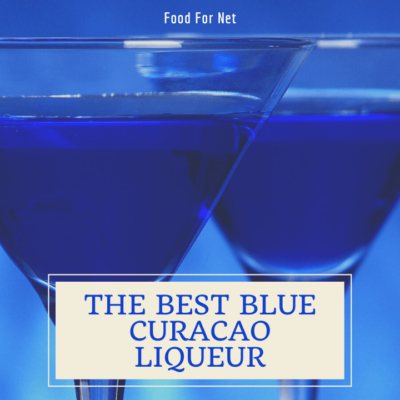





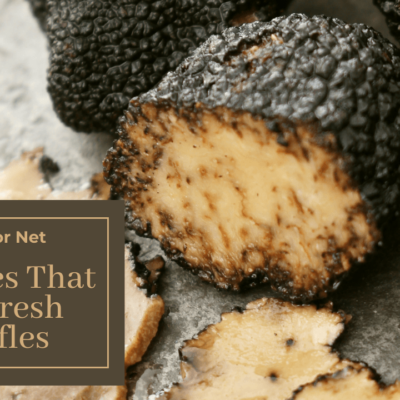





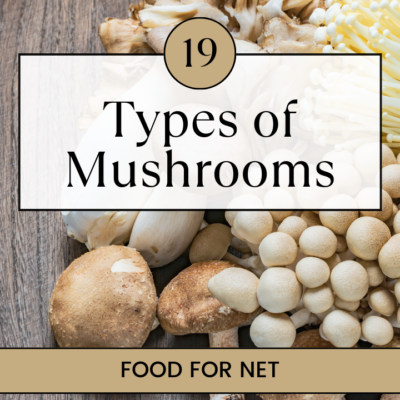
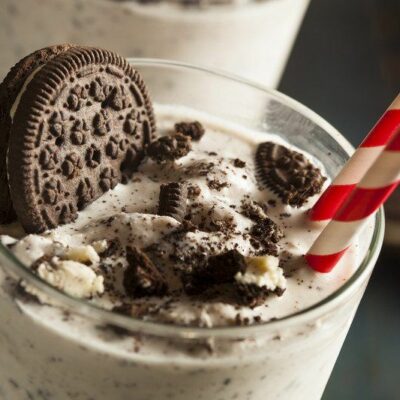
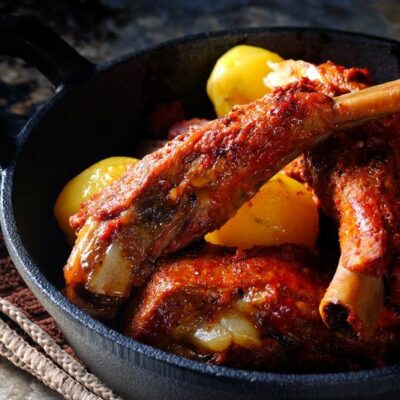

 The Best Rum For Coquitos
The Best Rum For Coquitos
It is said that the Auchentoshan Distillery is just outside Glasgow , England?????? It is SCOTLAND!! Please rectify!
I honestly don’t know how that happened. Shame on me, and I very much appreciate you calling out my mistake. It’s been rectified!
You said 90% that would be 90 proof or 45%
You are correct. Fixed. 90% alcohol would be hand sanitizer LOL and you’d be dead.
Nice beginner’s guide!
If I want to try beginners whiskeys I think I stick to good old Anerican bourbons why would I want to try Scotch it’s totally different from good old Anerican bourbons
Just bought the Ballastine Whisky based on your recommendation. Looking forward to taste it with the boys.
Thanks for the beginner’s guide!
Nice guide…. I’m just getting in to whisky myself. Just cleaned off a bottle of Woodford Reserve DS, it’s the first time iv ever finished a whole bottle to myself, lasted me 12 days-ish, also first time I can honestly say I enjoyed it. Although I think I’d like something a touch sweeter… Softer maybe. Redbreast 12 has been recommended to me, any thoughts on that or any recommendations to a keen whisky noob, thanks.